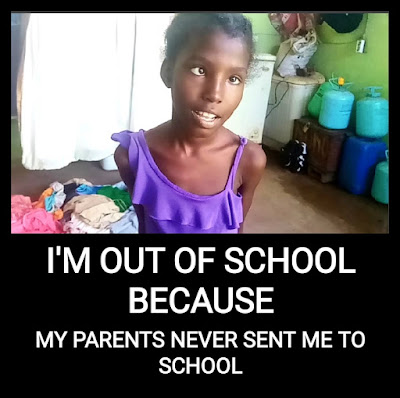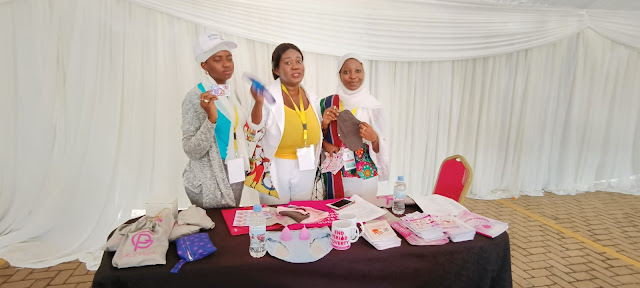Inclusive education for disabled girls. Campaign with Sofonie Dala
''Still left behind: Inclusive education for disabled and illiterate girls''
“Our work continues to break down the barriers that can still prevent girls getting an education in developing countries. While great strides have been made towards increasing girls’ participation in education, the same cannot be said for children with disabilities. Therefore, this campaign is dedicated to all disabled and illiterate girls in developing world."
Cultural stigma and lack of awareness may mean families do not enrol disabled girls in schools. In extreme cases they are hidden as a result of family shame.
Of the 25 million children who will never start school, 15 million are girls. In developing countries, 90% of children with disabilities do not attend school.
Our today's guest is called Dó, she will share with us the challenges that prevent her from being at school.
Hello. How are you?
Hi, I am fine thanks.
What is your name?
My name is Dó.
How old are you?
I'm 10 years old.
Dó do you study?
No, I don't.
Why not?
Because my father doesn't have money to pay for my studies.
Have you ever attended a school?
Not, never.
How many siblings do you have?
We are seven.
Are they studying?
Not.
Would you like to study?
Yes.
If someone offers you an opportunity. Would you go to school?
Yes, I want to study.
How has your day to day been. What do you do everyday?
I do the dishes, tidy up the backyards and the kitchen, then I go to play in the street.
Both disability inclusion and gender equality are key factors in achieving inclusive education as both gender and disability are significant factors of exclusion.
Inclusive education is often seen as making sure that all disabled children go to mainstream schools, but huge improvements need to be made in specialist schools too.
We need to work out how to break down the barriers that leave so many disabled children out of school. We need to think creatively and trial programs in different contexts and cultures. We need to gather robust data on what works and what doesn’t.
Some families resist sending their disabled daughters to school because of fears about their safety or in a bid to protect them from sexual violence. Girls with disabilities experience attacks and exploitation at much higher rates than other children.
Girls with disabilities in developing countries are effectively unseen and unheard and are often not benefiting from international efforts to improve access to education in developing countries.
Each and every child deserves to learn. Filismina will conclude our today's program singing a beautiful song - "I give it to you"
By so many places I passed
And of your miracles I heard
Until one day I found you
And in Thy presence I rested
My dreams wanted to achieve
You gave me the strength to fight
While people did not believe
You saw the best that was in me
Don't miss this opportunity to bring girls back to school. Join us!
Our campaign aims to identify illiterate and girls with disabilities in such a way that it supports building an inclusive society for all.
The Challenge of Inclusive Education in Africa, shows that disability gaps in education are increasing. We call for urgent action of Ministries of Education and other stakeholders. We need the global political will to tackle this devastating problem that is failing tens of millions of the world’s most vulnerable.
There are more than 100 million children with disabilities across the world – and in developing countries, 90% never go to school.
We recommend investment in inclusive schools and classrooms, equity focused planning and monitoring, as well as incorporating the needs of girls specifically in efforts to help disabled people access education.



Comments
Post a Comment